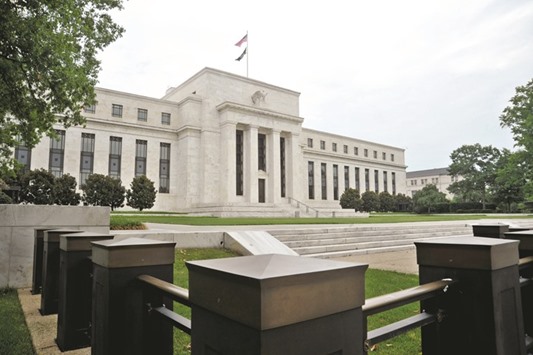The unexpected downturn in the US jobs market has once again removed an interest rate hike from the table as the Federal Reserve meets on monetary policy this week.
Analysts say the dismal May jobs report released on June 3, the worst in almost six years, and still-weak inflation will stay the hand of the Federal Open Market Committee, despite strong expectations just three weeks ago that a hike was coming this month or next.
Even Fed chair Janet Yellen had said on May 27 that an increase in the benchmark federal funds rate, currently at an ultra-low 0.25-0.50%, was likely “appropriate” at the FOMC’s June or July meeting.
That echoed what several other Fed officials had been saying, and while most of the focus was on the end-July meeting, many thought the June 14-15 meeting was also a real possibility.
Instead, the jobs report showing that just 38,000 new positions were added in May, only one-quarter of what was expected, changed the whole picture.
Yellen called it “concerning” and, while insisting she was still confident in steady US economic growth this year, abandoned any calendar reference for a rate increase.
“Given the disappointing employment report for May, the Fed is expected to delay a rate hike until September — assuming that the recent weakness in job growth is temporary,” said IHS Global Insight in a client note on Friday. “One should never attach too much significance to any single monthly report,” Yellen said on June 6, adding that the overall labour market situation has been “quite positive”.
But on top of that are more uncertainties ahead.
There is the general picture of slower world economic activity: The World Bank just slashed its global growth outlook for this year to 2.4% from 2.9%.
And inflation, which the Fed wants to see pick up as a sign of firm growth, is weakening even as one key element, the price of oil, is rising. Inflation expectations, as signalled by the markets, have been falling rather than rising.
“The Fed had until recently taken solace in the stability of inflation expectations.
Therefore, the downturn in the latter will not go unnoticed by the FOMC at its meeting next week,” said Deutsche Bank in an analysis.
In addition, markets are increasingly worried that the British will vote in favor of exiting the European Union in a referendum on June 23, a week after the FOMC meeting.
Many leading finance officials around the world, including Yellen herself, have warned of turbulence in markets and possible slower growth if Britain goes ahead with Brexit.
“A UK vote to exit the European Union could have significant economic repercussions,” Yellen said.
Carl Weinberg, chief US economist at High Frequency Economics, said that the mere idea that an EU member has gone this far in weighing an exit “has cracked the foundation of Project Europe.”
“The whole challenge is that no one can draw upon experience, or even logic, to predict what will happen,” he said.
The FOMC will announce its rate decision along with new forecasts for growth and inflation at the end of the meeting on Wednesday, and Yellen is scheduled to explain the decision and the Fed’s outlook in a press conference afterward.
While some analysts say a quick turnaround in the data could make July a possibility for a rate increase, CME fed funds futures contracts gave that a 20% possibility, and September only a 35% possibility.
Most views were that it would only come in December, with Deutsche Bank saying stubbornly low inflation would likely put off any more tightening to next year.

The US Federal Reserve building in Washington, DC. Analysts say the dismal May jobs report released on June 3, the worst in almost six years, and still-weak inflation will stay the hand of the Federal Open Market Committee, despite strong expectations just three weeks ago that a hike was coming this month or next.
